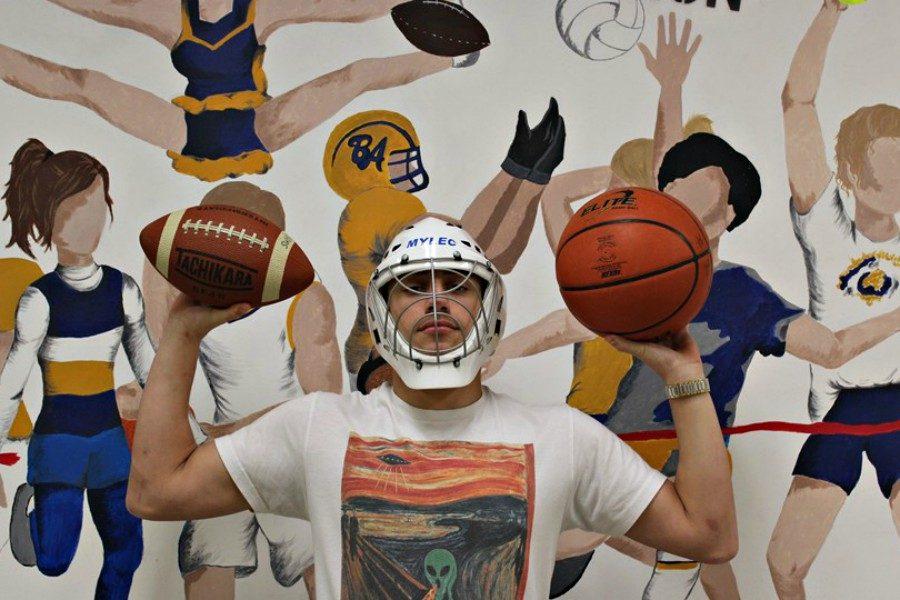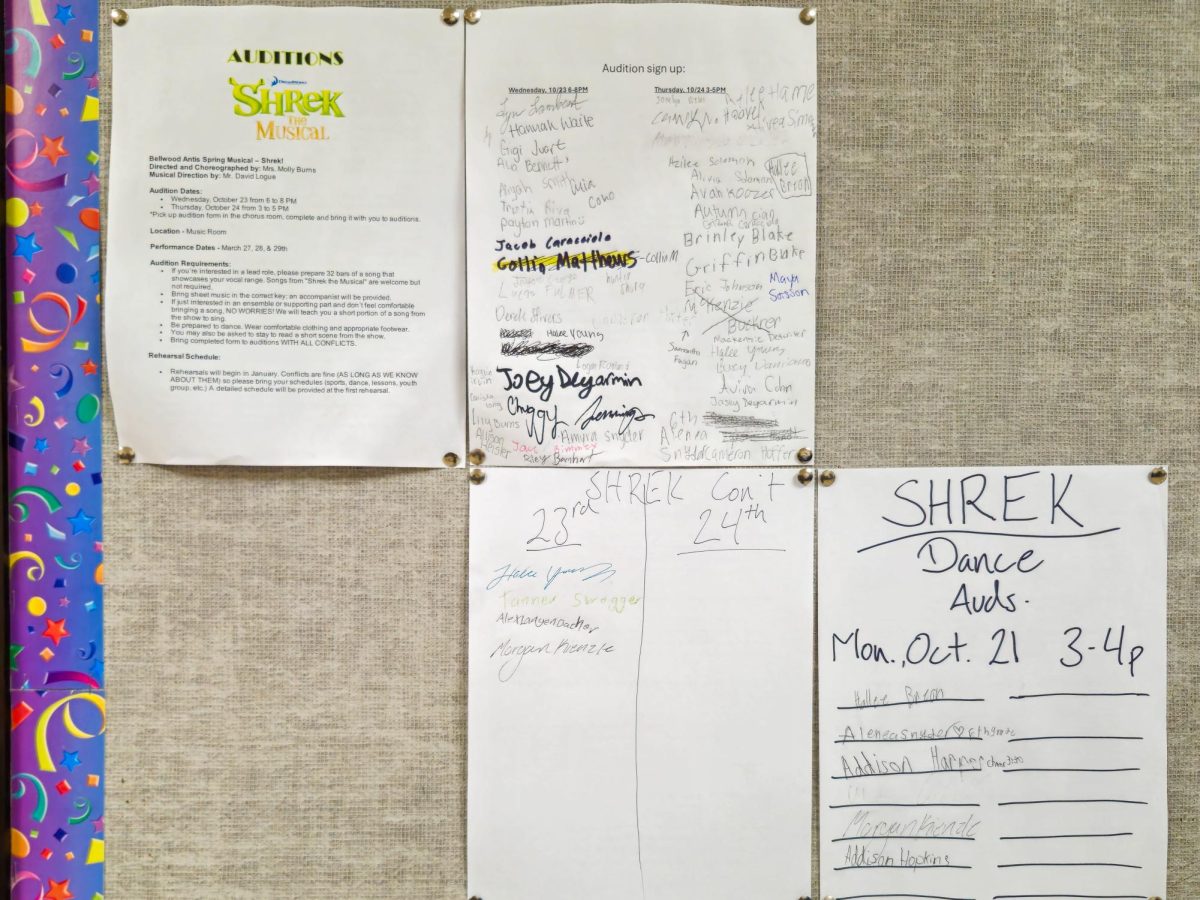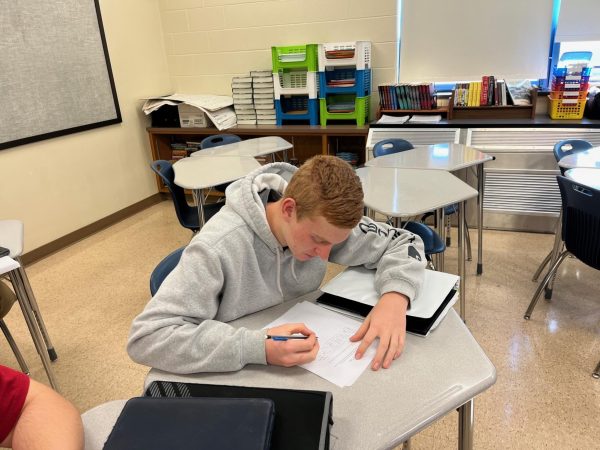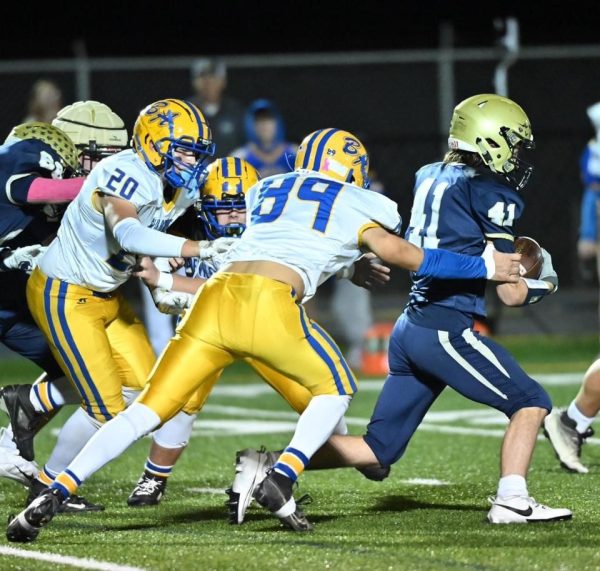Is overspecializing overdoing?
More and more youth athletes are choosing to play one sport, but at what cost?
Is it best to specialize in one sport or play as many as possible? That’s the question many young athletes face today.
January 20, 2017
Coach Nick Lovrich was a three sport athlete in high school at Bellwood-Antis from 1988-1991, competing in football, basketball, and track. His experiences as a player are one of reasons he thinks specialization is bad for young athletes.
“I believe it is more beneficial to be a multiple sport athlete. If you specialize in one sport you are very likely to get burnt-out, or wear out the body parts used in that sport,” said Coach Lovrich.
Sports specialization is a growing issue for high school athletes. It’s a choice between becoming a better athlete and using all your skills to their potential, or honing your specific skills in one sport, hoping to earn an athletic scholarship.
Mr. Lovrich said three sport athletes are more appealing to a college coach than a specialized athlete.
“I ran a survey to the three major colleges in Pennsylvania. I contacted coaches at Pitt, Penn State, and Temple regarding whether they look for a kid who specializes or plays multiple sports,” said Mr. Lovrich, who ran his informal survey with coaches from multiple sports.”From the answers I got back each coach said they would rather have a recruit playing multiple sports.”
Overspecializing is often seen as dangerous, with the potential to burn-out the athlete on the sport they now love.
Saige Maclewain, a senior swimmer and softball player, has been through this process.
“When I specialized in softball, I had to be careful and take good care of my body. The mechanics had to be good, and I had to make sure I wasn’t over-training,” Saige said.
A pitcher for the baseball team throwing year-round places a lot of wear and tear on their arm, while playing another sport like basketball could help the pitcher get away from his main sport to use more movements of his body. The pitcher would still be using his arms and legs just as he would in baseball, but using them differently.
It’s a philosophy supported by Bellwood-Antis athletic trainer Jesse Glass.
“I feel playing more than one sport benefits the athlete’s overall performance because other sports will focus on different muscle groups and improving conditioning,” said Mr. Glass.
The only time the Glass sees it could be beneficial playing only one sport is when an athlete is working other muscles somehow in the offseason.
“You have to supplement other types of strength and conditioning when only playing one sport. For me the bottom line is I don’t recommend it,” said Mr. Glass.
There is also the issue of a sport’s social value with young teens. Most high school athletes won’t go to college or the pros. What athletes get out of scholastic sports is friends and memories that will last a life time.
Senior Jordan McCracken hung up the shoulder pads and basketball shoes a few years ago to specialize in baseball. While he has had a solid career, he’s torn on whether the switch to specialization has been worth it.
“It’s hard to say. It definitely helped me with my mechanics and skill, but I really miss the good times of the other sports,” McCracken said.
Along with physical burnout, there’s mental burnout. Specializing athletes put so much effort into their sport every day that they often become tired of the work they’ve put in.
“If you find something that can really motivate you, it’ll help prevent you from becoming burnt-out. You have to be very determined if you want the decision to specialize to be successful,” said McCracken.
While it’s ultimately the athlete’s choice to specialize or not, the student athletes aren’t the only ones involved in the decision-making process. Parents need to be well aware of the pros and cons of overspecializing, but sometimes club and travel sports like AAU programs become status symbols valued by parents as much as their children.
Thousands of kids today go out for AAU teams, which were once looked at as elite compared to typical teams; however now it seems these clubs are just giant money schemes anymore, not so much elite players. And they encourage year-round play and financial commitment.
But freshman Alli Campbell provides an alternative perspective. She has been killing it on the basketball court in her first varsity season while receiving scholarship offers from several Division I programs. She has first-hand experience with serious AAU play and year-round specialization.
“I feel that playing with and against some of the best players in the country through AAU basketball has made me a much better player,” said Campbell
Overspecializing can make you better at that one sport, but possibly at the cost of friendships or even wear and tear on the body. On the other hand, playing multiple sports can make you a better overall athlete but perhaps at the cost of exposure like that received by Campbell.
But at this point there’s no going back because youth sports have become a huge industry, generating $7 billion in travel money alone.






